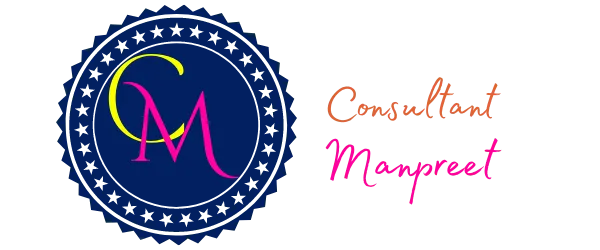
LLQP LICENSE EXAM TRAINING
LLQP (Life License Qualification Program) License Training is a crucial program for individuals aspiring to become an insurance advisor in Canada. This comprehensive training equips candidates with the essential knowledge and skills required to navigate the complex insurance industry, ensuring they meet regulatory standards and provide quality service to clients. Successful completion of LLQP Training is a vital step towards obtaining the necessary license to practice as a trusted insurance advisor.
LLQP LICENSE TRAINING FEES

LLQP/ HLLQP License Training, also known as Life License Qualification Program / Harmonized Life License Qualification Program, is a mandatory educational program designed for individuals seeking to become licensed insurance advisor in Canada. This training is a critical step for those wishing to embark on a career in the insurance industry and play a vital role in helping clients secure appropriate insurance coverage.
Here's a more detailed overview of LLQP License Training in Ontario:
1. Licensing Requirement:
In Canada, anyone who wants to act as an insurance advisor must be LLQP licensed via FSRA. This regulatory body ensures that insurance professionals meet specific educational and ethical standards to protect consumers' interests.
2. Pre-Licensing Education:
To become eligible for the LLQP licensing examination, aspiring insurance advisors are required to complete pre-licensing education. This education is typically offered through accredited insurance education providers, which can be colleges, universities, or private institutions. The program covers various aspects of the insurance industry, including insurance products, legal regulations, ethics, risk assessment, and customer service.
3. Course Duration:
The duration of the pre-licensing course can vary depending on the educational institution and the specific curriculum they offer. It typically ranges from a few weeks to several months. The coursework is intensive and covers a wide range of insurance-related topics.
4. Licensing Examination:
Upon successfully completing the pre-licensing education, candidates must pass the LLQP licensing examination. This examination assesses their knowledge of insurance principles, regulations, and their ability to apply this knowledge to real-world scenarios. It is essential to prepare thoroughly for this exam, as it is the final step before obtaining the license.
5. License Application:
After passing the licensing examination, individuals can apply for their LLQP license via a Sponsor Insurer. They must submit the required documentation and fees to FSRA for the license to be issued. Once licensed, individuals are legally allowed to work as insurance brokers in Ontario.
6. Ongoing Professional Development:
The insurance industry is continuously evolving, and brokers are required to stay up-to-date with changes in regulations, products, and market trends. LLQP also mandates ongoing professional development, which includes completing a specific number of continuing education hours over a defined period to maintain the license.
7. Ethical Standards:
Insurance advisors in Canada are held to high ethical standards. FSRA enforces a strict code of conduct that all licensed brokers must adhere to. This code includes guidelines on client confidentiality, conflict of interest, and fair and honest dealings with clients.
8. Consumer Protection:
The primary goal of FSRA regulation is to protect consumers. By ensuring that insurance brokers are knowledgeable, ethical, and competent, the licensing process helps to safeguard the interests of clients seeking insurance coverage.
In summary, LLQP License Training in Ontario is a comprehensive process that equips individuals with the necessary knowledge and skills to become licensed insurance brokers. It is designed to ensure that brokers provide valuable and ethical services to clients while adhering to industry regulations. Continuous professional development is also a key component of maintaining this license, ensuring that insurance brokers stay current in a dynamic industry.
What is included in the LLQP Training
Module 1
Life Insurance
Module 2
Accident and Sickness Insurance
Module 3
Segregated Funds and Annuities
Module 4
Ethics and Professional Practice
Weekday Classes
Weekday Classes
Weekend Classes
1 hr Class
Mon, Wed, Fri (Evening or Late Evening batch)
Tue, Thr, Sat (Evening or Late Evening batch)
(Sat - afternoon only)
Weekend Classes
1.5hr Class
Sat & Sun
Morning and Evening batch
Training Recordings shared on a dedicated portal
Chapter wise Question Bank
2xMock Exams
Reviews for Coaching/Consultancy
Make Payment
Frequently Asked Questions
What is the LLQP License?
The LLQP License is required to sell life insurance products in Canada. This includes life insurance, accident and sickness insurance, segregated funds, and annuities. It’s the licensing standard for individuals who want to become life insurance agents.
What are the requirements to get an LLQP License?
To obtain an LLQP license, you need to:
Be at least 18 years old.
Complete the LLQP course from an approved education provider.
Pass the LLQP provincial exam.
Apply for your license through your provincial insurance regulator.
How do I enroll in the LLQP course?
You can enroll in the LLQP course through any approved course provider in your province. You will typically need to register, complete the required study modules, and obtain a certification of completion before attempting the exam.
What are the components of the LLQP course?
The LLQP course covers four key modules:
Life Insurance
Accident and Sickness Insurance
Segregated Funds and Annuities
Ethics and Professional Practice
Some provinces also include a section on provincial insurance legislation.
Is the LLQP course available online?
Yes, most LLQP education providers offer the course in online formats, allowing you to study at your own pace. However, some may also offer in-person or hybrid options depending on the provider.
How much does the LLQP course cost?
The cost of the LLQP course can vary depending on the provider and province. On average, the course costs between $250 and $800. Some programs may offer additional resources or exam preparation materials at extra costs.
What is the LLQP provincial exam?
The LLQP provincial exam is a multiple-choice exam designed to test your knowledge of the course material. You must pass this exam to apply for your license. The exam consists of four modules, aligned with the LLQP course modules, and you must pass each module to succeed.
How is the LLQP exam structured?
The LLQP exam includes the following sections:
Life Insurance
Accident and Sickness Insurance
Segregated Funds and Annuities
Ethics and Professional Practice
Each module consists of 25 to 40 multiple-choice questions, and the passing grade varies by province, typically around 60%.
How can I prepare for the LLQP exam?
To prepare for the exam:
Complete all the modules of the LLQP course.
Use exam preparation materials provided by your education provider.
Take mock exams to get familiar with the question format and time management.
Focus on understanding the core principles of life insurance, segregated funds, ethics, and laws related to insurance practices.
Where do I take the LLQP exam?
The exam can be taken online (remotely proctored) or in person at an authorized exam center in your province. Make sure to register for the exam through your provincial regulator or approved testing provider.
What happens if I fail the LLQP exam?
If you fail any module of the LLQP exam, you can retake it. However, there may be a waiting period before you can reschedule, and additional fees may apply. You’ll only need to retake the module(s) you didn’t pass.
How long is my LLQP certification valid for?
Once you complete the LLQP course and pass the exam, your certification is typically valid for one year. You must apply for your license within that period, or you may need to retake the exam.
How do I apply for the LLQP license after passing the exam?
After passing the LLQP exam, you must:
Submit an application through your provincial insurance regulator.
Provide your LLQP certification and exam results.
Pay the required licensing fee.
Get sponsored by an insurance company if required by your province.
Do I need to be sponsored by an insurance company?
In some provinces, a sponsorship by a licensed insurance company is required to apply for your LLQP license. The insurance company will guide you through the licensing process and may assist with your professional development.
How long does it take to get the LLQP license?
The process of obtaining your LLQP license varies, but it typically takes between 2 to 6 months. This includes completing the course, passing the exam, and applying for the license through your provincial regulator.
What can I sell with an LLQP license?
With an LLQP license, you can sell:
Life insurance policies
Accident and sickness insurance
Segregated funds
Travel Insurance
Health Insurance
Annuities
Is the LLQP license valid across all provinces in Canada?
Once licensed, your LLQP license is valid in the province where you obtained it. However, you can apply for license reciprocity in other provinces, meaning you can transfer your credentials if you want to work in a different province.
How do I maintain my LLQP license?
To maintain your LLQP license, you will need to:
Pay annual licensing fees.
Complete ongoing Continuing Education (CE) credits. The number of credits required varies by province.
What are Continuing Education (CE) credits?
CE credits are required to keep your LLQP license active. You must complete a certain number of hours of education each year on topics relevant to the insurance industry to stay compliant with provincial regulations.
Can I sell mutual funds with an LLQP license?
No, an LLQP license allows you to sell life insurance products and segregated funds (which are a type of insurance investment). To sell mutual funds, you would need to obtain a Mutual Fund Dealer license.
What’s the difference between LLQP and A&S (Accident & Sickness) license?
The full LLQP license allows you to sell both life insurance and accident & sickness insurance. If you are only interested in selling accident & sickness products, you can apply for a standalone A&S License, which only requires completing the accident & sickness modules of the LLQP course and exam.
What is the role of the provincial insurance regulator in the LLQP licensing process?
Provincial insurance regulators oversee the licensing process, ensuring that all applicants meet the necessary requirements, pass the LLQP exam, and comply with ongoing licensing regulations. They also handle complaints, enforcement, and licensing renewals.
Make Payment
Proudly working 100% remotely in Canada, Post COVID-19
@ Consultant Manpreet. All Rights Reserved 2020.
